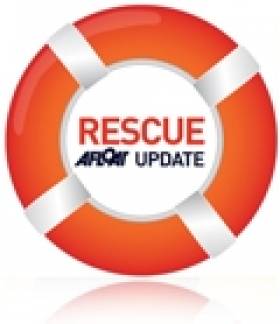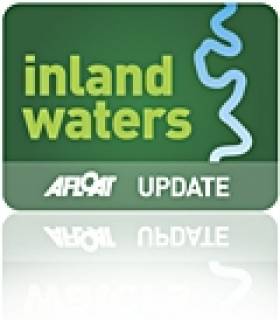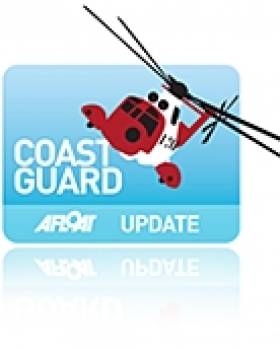Displaying items by tag: Emergency Services
Kerry Calls Emergency Workers For 'Heroes Week' This June
#Rescue - Emergency workers with Irish heritage from all over the world are being invited to celebrate Heroes Week in Tralee this June.
As part of The Gathering 2013 initiative, the chiefs of Co Kerry's emergency services will welcome first responders with Irish heritage - or an affinity for Ireland - for a week-long reunion among colleagues in Ireland.
That means any members of the police, fire service, coastguard, ambulance service, the Red Cross and the RNLI the world over!
Visitors will be declared 'guests of honour' in Tralee for the week, and among the various events planned between 12-17 June, they will have a chance to trace their Irish roots, and sightsee around one of Ireland's most picturesque spots.
And what's more, the not-for-profit event aims to raise funds for vital local rescue and lifesaving services.
As reported on Irish Central, Mayor of Kerry Terry O'Brien said: “We salute the men and women who go to work each day with only one purpose in mind – to protect and save lives. Many of them have Irish roots and we want to invite them home.
"Kerry has a strong tradition of volunteerism and a collective pride-of-place that will see us roll-out the red carpet to welcome our Heroes home to the Kingdom County. I hope you can join us and we assure you of a memorable visit with us and a warm Irish welcome.”
Full details of the event, including booking information, are available on the Heroes Week website HERE.
Emergency Exercise on Shannon-Erne Waterway Next Weekend
#InlandWaterways - Waterways Ireland advises all masters of inland vessels and the public that the Emergency Services will conduct a major water-based exercise centred on Upper Lough Erne and the Shannon-Erne Waterway next Saturday 16 February 2013.
The areas of Geaglum, Derryadd, Kilmore, Corradillar and Naan Island in Upper Lough Erne will all be affected between the hours of 10am and 10pm, while Ballyconnell on the Shannon-Erne Waterway will be affected between 2pm and 6pm.
#COASTGUARD - The Irish Coast Guard is among the services that can be contacted through a new emergency text scheme for the deaf, hard of hearing and speech impaired, The Irish Times reports.
A pilot for the new www.112.ie service was launched by Minister for Communications Pat Rabbitte yesterday. It enables users who are unable to communicate verbally to send text messages to the Emergency Call Answering Service.
The scheme will run till the end of June, operated by BT Ireland, and will in the words of the minister take "a step closer towards parity of access for all to the emergency services".
Users are required to register online before using the service. They can then send texts to 112 specifying the service needed (whether gardaí, fire brigade, ambulance or coastguard), the problem encountered, the county they are in and their exact location.
The programme has been welcomed by the Irish Deaf Society, which says it finally puts deaf people "on an equal par".
The Irish Times has more on the story HERE.
Keep Animals Away from Frozen Ponds and Lakes
Belfast Coastguard, in warning the public about venturing out on thin ice said:
"There's no such thing as safe ice. If you do go through the ice, you could face frostbite, hypothermia and ultimately death if you are not rescued fast enough.
"If you're going out anyway in poor weather take your mobile phone with you; because it's cold out there, and you never know when you might need it in an emergency".
"Today in Northern Ireland, a dog drowned after falling through the ice at Enniskillen, Lough Erne. Remember to keep dogs on leads in danger areas, or avoid walking close to frozen lakes, rivers or ponds. Never go in the water after a dog - call the Emergency Services instead.
"If you do fall through the ice, try not to panic. You're going to take a deep breath when you go in, and you're going to suck some water in.
"You have to fight through that and that urge to panic. In that first stage, find something to hold on to whilst you're gasping and suffering from 'cold shock'. Once you get yourself calmed down, you're going to get really cold really fast. You're going to have about 10 minutes where you can actually do stuff and then your fine motor skills will start to fail, your fingers are going to be so cold, you're not going to be able to grab hold of stuff. You're going to have to pull yourself up with your elbows, your arms, and kick."
If you do fall in but are able to get out, you should roll yourself in the same direction to shore the same way you walked in because you know that area of ice is stable.
































































